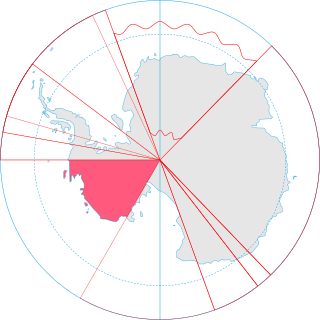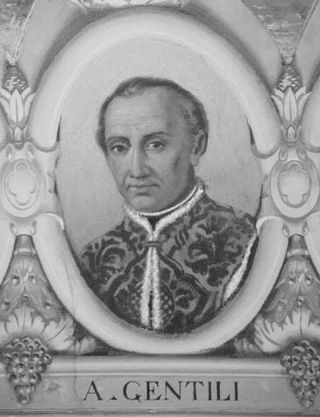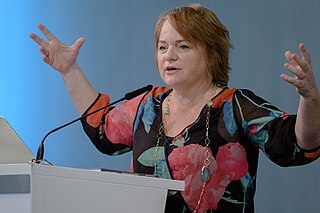Related Research Articles
Natural law is a system of law based on a close observation of natural order and human nature, from which values, thought by natural law's proponents to be intrinsic to human nature, can be deduced and applied independently of positive law. According to the theory of law called jusnaturalism, all people have inherent rights, conferred not by act of legislation but by "God, nature, or reason". Natural law theory can also refer to "theories of ethics, theories of politics, theories of civil law, and theories of religious morality".

Hugo Grotius, also known as Hugo de Groot or Huig de Groot, was a Dutch humanist, diplomat, lawyer, theologian, jurist, statesman, poet and playwright. A teenage prodigy, he was born in Delft and studied at Leiden University. He was imprisoned in Loevestein Castle for his involvement in the controversies over religious policy of the Dutch Republic, but escaped hidden in a chest of books that was regularly brought to him and was transported to Gorinchem. Grotius wrote most of his major works in exile in France.

Terra nullius is a Latin expression meaning "nobody's land". Since the nineteenth century it has occasionally been used in international law as a principle to justify claims that territory may be acquired by a state's occupation of it. There are currently three territories sometimes claimed to be terra nullius: Bir Tawil, four pockets of land near the Danube due to the Croatia–Serbia border dispute, and parts of Antarctica, principally Marie Byrd Land.
Hedley Norman Bull was Professor of International Relations at the Australian National University, the London School of Economics and the University of Oxford until his death from cancer in 1985. He was Montague Burton Professor of International Relations at Oxford from 1977 to 1985, and died there.

Alberico Gentili was an Italian jurist, a tutor of Queen Elizabeth I, and a standing advocate to the Spanish Embassy in London, who served as the Regius Professor of Civil Law at the University of Oxford for 21 years. He is regarded as the co-founder of the field of international law, and thus known as the "Father of international law". The first medieval writer on public international law, in 1587 Gentili became the first non-English person to be a Regius Professor. He also authored numerous books, which are recognized to be among the most essential sources for international legal doctrines, yet that also include theological and literary subjects.

The New York University School of Law is the law school of New York University, a private research university in New York City.

Theodor Meron, is an American-Israeli lawyer and judge. He served as a judge of the International Criminal Tribunal for the former Yugoslavia (ICTY), International Criminal Tribunal for Rwanda (ICTR), and the International Residual Mechanism for Criminal Tribunals (Mechanism). He served as President of the ICTY four times and inaugural President of the Mechanism for three terms (2012–19).

Frank Joseph Guarini Jr. is an American politician from New Jersey. A member of the Democratic Party, he served as a member in the United States House of Representatives for seven terms from 1979 to 1993. He is of Italian descent. Since the death of Al Quie in August 2023, he is the oldest living former representative.

Pratap Bhanu Mehta is an Indian academic. He was the president of the Centre for Policy Research, a New Delhi-based think tank and was the Vice-Chancellor of Ashoka University from July 2017 to July 2019.
Andrew James Hurrell, FBA is a leading British scholar of international relations. He is currently a senior research fellow at Balliol College, Oxford, having previously been Montague Burton Professor of International Relations from 2008 to 2021.
International law is the set of rules, norms, and standards that states and other actors feel an obligation to obey in their mutual relations and generally do obey. In international relations, actors are simply the individuals and collective entities, such as states international organizations, and non-state groups, which can make behavioral choices, whether lawful or unlawful. Rules are formal, often written expectations for behavior and norms are less formal, customary expectations about appropriate behavior that are frequently unwritten. It establishes norms for states across a broad range of domains, including war and diplomacy, economic relations, and human rights.

Kalypso Aude Nicolaïdis is a Franco-Greek academic, currently Professor of International Relations and Director of the Center for International Studies at Oxford University, England. She teaches in the areas of European integration, international relations, international political economy, negotiation and game theory and research methods as University Lecturer in the Department of Politics and International Relations. In 2020, Nicolaïdis joined the School of Transnational Governance at the European University Institute as a full time professor.
Global administrative law is an emerging field that is based upon a dual insight: that much of what is usually termed “global governance” can be accurately characterized as administrative action; and that increasingly such action is itself being regulated by administrative law-type principles, rules and mechanisms – in particular those relating to participation, transparency, accountability and review. GAL, then, refers to the structures, procedures and normative standards for regulatory decision-making including transparency, participation, and review, and the rule-governed mechanisms for implementing these standards, that are applicable to formal intergovernmental regulatory bodies; to informal intergovernmental regulatory networks; to regulatory decisions of national governments where these are part of or constrained by an international intergovernmental regime; and to hybrid public-private or private transnational bodies. The focus of this field is not the specific content of substantive rules, but rather the operation of existing or possible principles, procedural rules and reviewing and other mechanisms relating to accountability, transparency, participation, and assurance of legality in global governance.

De iure belli ac pacis is a 1625 book written by Hugo Grotius on the legal status of war that is regarded as a foundational work in international law. The work takes up Alberico Gentili's De jure belli of 1598, as demonstrated by Thomas Erskine Holland. The book was written in Latin and published in Paris.
Sir Adam Roberts is Emeritus Professor of International Relations at the University of Oxford, a senior research fellow in Oxford University's Department of Politics and International Relations, and an emeritus fellow of Balliol College, Oxford.

Raffaele Marchetti is an Italian political scientist and editorialist.
Nico Krisch is a legal scholar, specializing in international law, constitutional theory, and global governance. He is professor at the Graduate Institute of International and Development Studies in Geneva. Previously, he was research professor at the ICREA, Institut Barcelona d'Estudis Internacionals, and a Fellow at the Hertie School of Governance in Berlin. He has also been a professor of international law at the Hertie School, a senior lecturer at the Law Department of the London School of Economics and Political Science, and a research fellow at Merton College (Oxford), New York University School of Law and the Max Planck Institute for International Law in Heidelberg. He has also been a visiting professor of law at Harvard Law School.
Randall Christoph Herman Lesaffer is a Belgian historian of international law. He has been professor of legal history at KU Leuven since 1998 and at Tilburg University since 1999, where he also served as dean of Tilburg Law School from 2008 to 2012. He currently serves as the head of the Department of Roman Law and Legal History at the Faculty of Law and Criminology at KU Leuven. His work focuses on the Early Modern Age.
In Greek mythology, Dardanus was a Scythian king, who was the father of Idaea, the second wife of Phineus, the king of Salmydessus in Thrace. After Idaea falsely accused Phineus' sons by his first wife, she was sent back to Dardanus, where he condemned her to death.

The Liechtenstein Institute on Self-Determination (LISD) is a research institute on self-determination, self-governance, and diplomacy. LISD is affiliated with the Princeton School of Public and International Affairs at Princeton University. Founded in 2000 by the Prince Hans-Adam II of Liechtenstein, the Institute aims to enhance global peace and stability through its projects, publications, and commentaries.
References
- ↑ "Constitutional Law Across Borders: At the launch of NYU Law's new Guarini Institute for Global Legal Studies, Justice Sonia Sotomayor talks with former South African Constitutional Court Justice Albie Sachs | NYU School of Law".
- ↑ "A globetrotting Benedict Kingsbury goes from 16th Century Europe to modern-day Asia | NYU School of Law". www.law.nyu.edu. Retrieved 1 May 2018.
- ↑ "Honorary doctorates Tilburg University". Tilburg University. Archived from the original on 3 August 2018. Retrieved 1 May 2018.
- ↑ "InfraReg". Institute for International Law and Justice. Retrieved 19 May 2019.